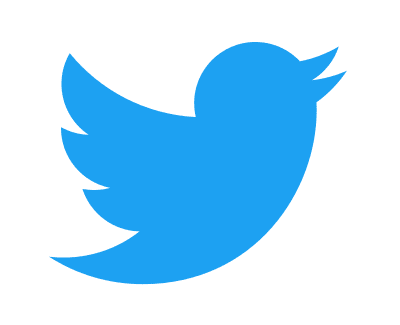
I'm a proud HBCU graduate. My southern Negro College engineering school prepared me well for the real world, but perhaps more so, was my first real experience of being in an environment almost entirely run by black folks. This of course had it's pluses and minuses. The facilities were downright meager compared to your typical "white college". As a freshman, my floor of 100+ young men shared three pay phones. The climate controls were an either/or proposition of blasting heat or Arctic level cold. The bathrooms featured prison-style open showers and toilets that worked when they preferred, which is to say, not very often. The dorms were built using the same floorplan as our state penitentiary. The cafeteria food was one step above the stuff I occasionally dole out when I do community outreach at our local homeless shelter. And yeah, there was saltpeter in there, or so the urban legend went.
The odd thing about this is that for someone like myself who never had to "rough it" growing up, these somewhat less than ideal accommodations were bizarre motivating factors to bust my butt in class. I can't speak for other HBCUs, but this lack of pampering, especially when contrasted with the Ritz-Carlton level accoutrements at our rival crosstown public "white college" oddly encouraged spirit and pride in my school. And in some equally odd fashion, it fostered an "us against the world" mentality that caused people to stick together and pull each other up. Besides, the level of instruction and education were world-class. Being surrounded by other brilliant black folks from all around the world broadened my horizons. And since the school is world-renowned for graduating more black engineers than any other any four year college, employers were practically knocking themselves over to cherrypick the best of the best. I graduated with honors, and walked away with my choice of 9 equally enticing offers. Best of all, since I was an in-state resident, my tuition was barely even $800/semester. Can you can "zero student loans"? I can.
Seriously, what's not to like?
The big selling point on HBCUs in the early 90's was that our schools generally had superior retention and graduation rates, and were universally hailed as being more supportive environments for black students. There were the cultural intangibles as well (read: girls and Two to Sixes), but that's neither here nor there. When I walked across that stage on graduation day, you couldn't tell me there was any better educational option for a black student than a quality (key word: quality. they ain't all built alike) HBCU.
Over time, I've changed my tune a bit. Much of this has to do with post-grad exposure to other black folks who went to "white colleges", and the realization that their overall experiences weren't all that different from mine. And an equal amount comes from the realization that after your first real "job" post-graduation, nobody really cares or even asks where you went to college anymore. So, while in the past I might have been pretty dogged in my insistence that my son follow my lead and become a 3rd generation alumnus of my Negro College HBCU, I now realize they're hardly one-size-fits all propositions. Some black folks who might have grown up in more progressive areas may not need the cultural experience. And kids nowadays aren't willing to "rough it". Even though most HBCUs have dramatically improved their facilities, they're still decades behind your typical "white college".
So, my final pro-HBCU argument would be the graduation and retention rates, which used to speak to some level of support that the typical student wouldn't get at a majority institution. But after reading this little tidbit in the Sunday Post, I'm wondering if even that point has merit anymore.
More black students graduate from the University of Virginia within six years than from any other public university in the country, and here's why: institutional commitment, an admissions process that selects strong students, generous financial aid and a network of peer advisers.Truth be told, most of these schools have higher graduation rates because they generally are far more selective about which black students they admit. The mission of the typical HBCU isn't the same as a UVa. HBCUs generally have lower standards of admission, in the name of giving nearly everyone a fair shake at a college education. But even that doesn't explain the paltry graduation rates of some schools like Coppin State, Bowie State, and Virginia Union.
Nationally, there's a gap of nearly 20 points between the percentage of black and white students who graduate; just 44 percent of black students finish within six years, according to four-year averages calculated by the Journal of Blacks in Higher Education, which has found U-Va. to be the leader "by far" among public schools for the past 14 years.
The University of Maryland has in recent years improved its six-year graduation rate, to 71 percent for black students who started in 2000. That's part of a systemwide initiative to improve all of Maryland's public universities' six-year graduation rate for black students, which is as low as 20 percent at Coppin State.
The most recent figure from U-Va., for black students who began college in 2001, is just shy of 90 percent. That rate is lower than those at the top schools in the country (Harvard University has steadily been in the mid-90s) but better than most of the schools U-Va. considers peers, such as the University of California at Berkeley, the University of North Carolina, Cornell University and Vanderbilt University.
The reasons some black students drop out include cost, poor academic preparation from weak high schools, the racial climate and a lack of support because there hasn't been a family tradition of college, according to Bruce Slater, the journal's managing editor.
Seriously, I don't want anyone to think I'm dumpin' on my alma mater. I'm not. I give money. I use my management position to help get more alumni in the door at my company. It's an even better school academically now than when I was there. The facilities are vastly improved. It is still dollar-for-dollar one of the best bargains in higher education. Sure, all the sports teams absolutely suck, but hey, you can't have it all. If I had to do it all over again, I wouldn't choose any other school. But after all these years, I guess I have to ask the dreaded question.
Question: Are Historically Black Colleges and Universities still relevant? Are you alarmed by the graduation rates of some HBCUs? Did you go to an HBCU? If so why? If not, why?
At U-Va., a Dean Making a Difference [WashPost]
Historically black colleges and universities Info [Wikipedia]




